There may be many brands of period pads and tampons on the market, but they mostly emphasise on length or absorption capabilities. Reusable and organic products for menstruation are on the rise however, and for a number of good reasons.
*Note: Whilst this post is sponsored by The Period Co., all opinions expressed in this review are my own.
Table of Contents
The Case for Reusable and Organic Menstrual Products
If you aren’t aware, period poverty is a thing, where young women are not able to afford menstrual products all across the world. The cost adds up and in the U.S. alone, women spend $2 billion a year on feminine hygiene products. This leads to them missing out on school, whilst battling the pervasive stigma of being ‘dirty’.
Many pads and tampons also contain bleach and other toxic chemicals. Your vagina is a mucous membrane, which means it secretes and absorbs fluids and chemicals rapidly. Tampons can cause Toxic Shock Syndrome (TSS), and these chemicals may also be carcinogenic.
Apart from the ill effects they may have on our health, disposable menstrual products also have an impact on our planet. Almost 20 billion sanitary pads, tampons and applicators are dumped into landfills every year, and that’s in North America alone. The dioxins contained in these products are known as environmental pollutants (so imagine absorbing these into your own body every month!).
In this article you will discover some good options beyond the standard disposable pad and tampon. In addition, they will have an emphasis on how and why it’s both kinder on your body and the environment.
Pin to Your Boards on Women’s Health:
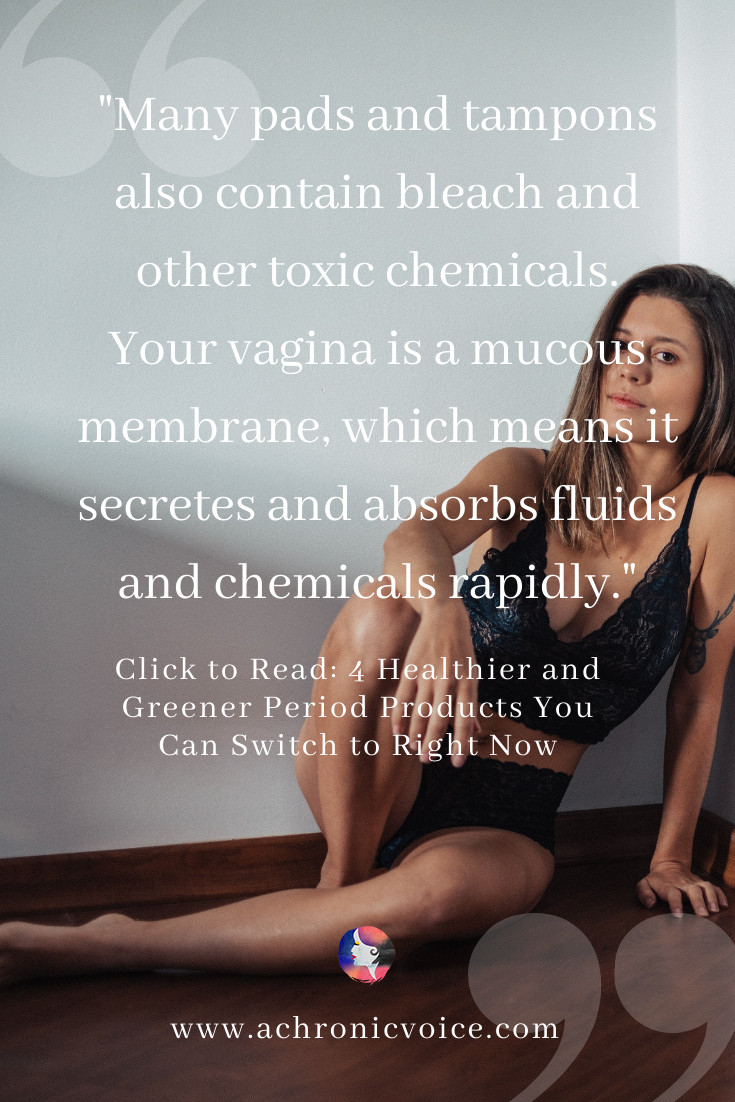
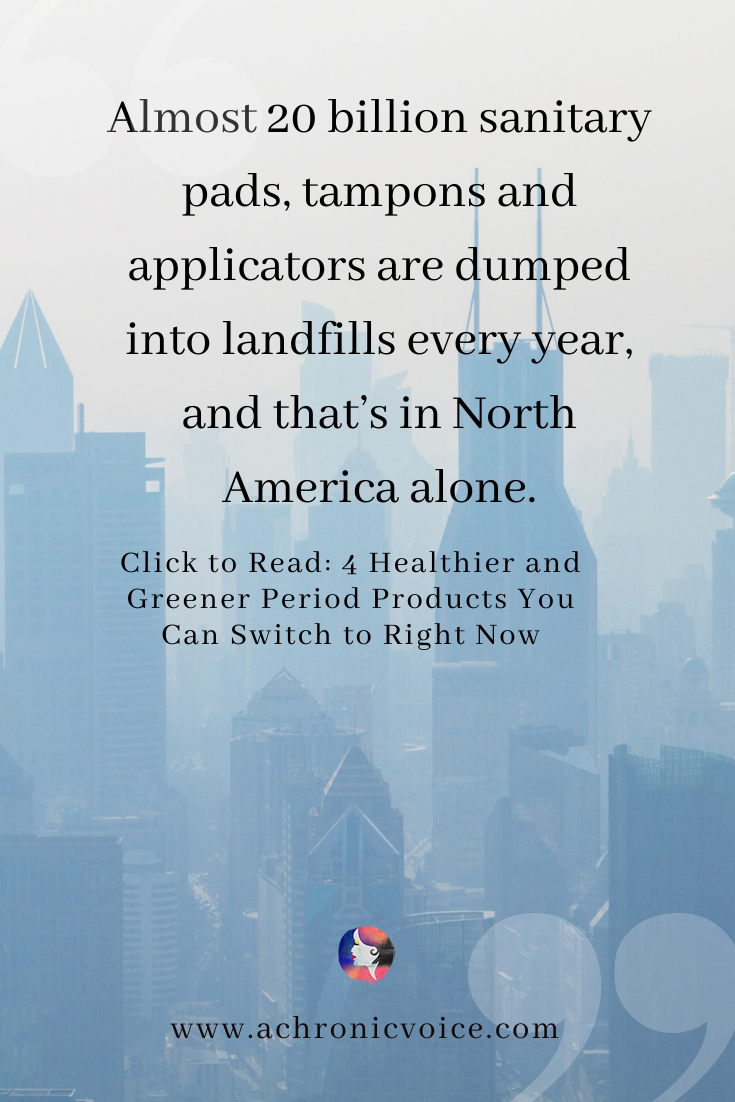
1. Menstrual Cups
I’m pretty sure you’ve heard of menstrual cups, as they are rising in popularity amongst women. They are reusable, flexible, comfortable, and healthier than a tampon. They come in different sizes so do some research, and get one based on your individual body type and needs. A large cup for example, may not feel comfortable for a woman with a low cervix, and a small one may be frustrating for someone with a heavy flow.
Unlike tampons, you can wear menstrual cups for 6 to 12 hours, and use them overnight. Always clean them before re-insertion, and empty them at least twice a day. With proper care they can last for up to 5 – 10 years.
Some of the pros to using a menstrual cup are:
- They don’t dry out the vagina, thus preserving healthy bacteria that protect you from vaginal infections.
- Most are made of medical-grade silicone material (which are also used for medical implants), and don’t contain toxic chemicals found in regular pads and tampons.
- They are reusable, which is better for your wallet and the planet.
- They can be worn with an IUD (but check with your gynaecologist first to be safe).
- They hold more blood than a tampon and can be worn overnight.
- You can still have sex whilst wearing them with certain brands/types, such as The Ziggy Cup.
Some of the cons to using a menstrual cup are:
- It might take you a few tries before you learn how to insert it properly, or to get used to it.
- Cleaning it in a public bathroom might be tricky.
Having said that, there are workaround to the cons. Some women carry a spray to clean them within bathroom stalls. Some empty then wipe them with a wet wipe or tissue paper. There are also different methods of insertion which we won’t delve into detail here, as there are more than a dozen you can search for on the internet! Finally, wetting the cup with water or a water-based lube can make the process smoother.
2. Period Underwear
I recently had Implanon – a progestin-based birth control – inserted into my arm. Corpus luteum cyst ruptures happen to healthy women too, but mostly they just feel a twinge of pain. I live with Antiphospholipid Syndrome (a blood clotting disorder) however, and take blood thinning medications to manage it. As a result, the doctors had difficulty controlling the bleeding, which lead to life-threatening scenarios a few times.
Birth controls can cause side effects and mess up your menstrual cycle, as it did to mine. I can’t predict when blood will flow out of my vagina now, although I’m glad that it’s generally light. I find period panties great for this purpose, especially since I spend a lot of time at home. They feel just like regular underwear, and are so easy to maintain. Whilst it’s best to hand wash them, lazy people like me just rinse them in cold water and dump them into the washing machine. And no, they don’t stain your other clothing items.
Period underwear come in many cuts such as bikini, boyshorts, briefs, and even thongs and leotards, so you can pick your go to favourite! Alternatively, use them as an added layer of protection for heavy flows or to prevent leakage.
Pin to Your Boards on Women’s Health:
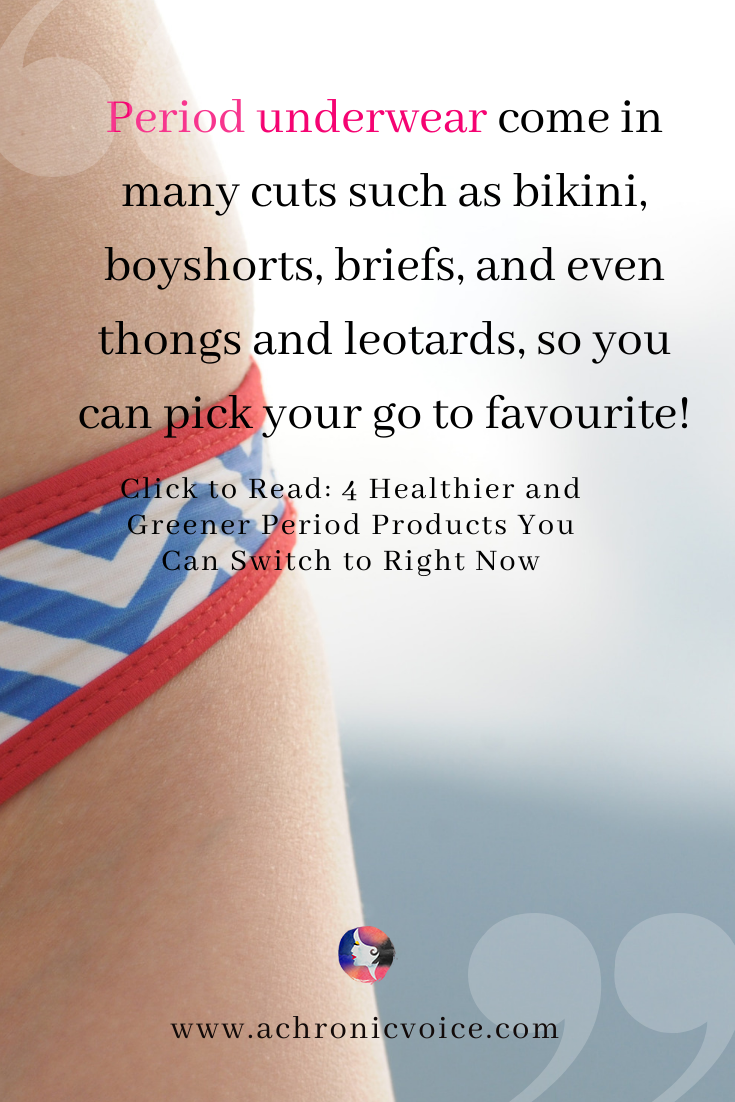
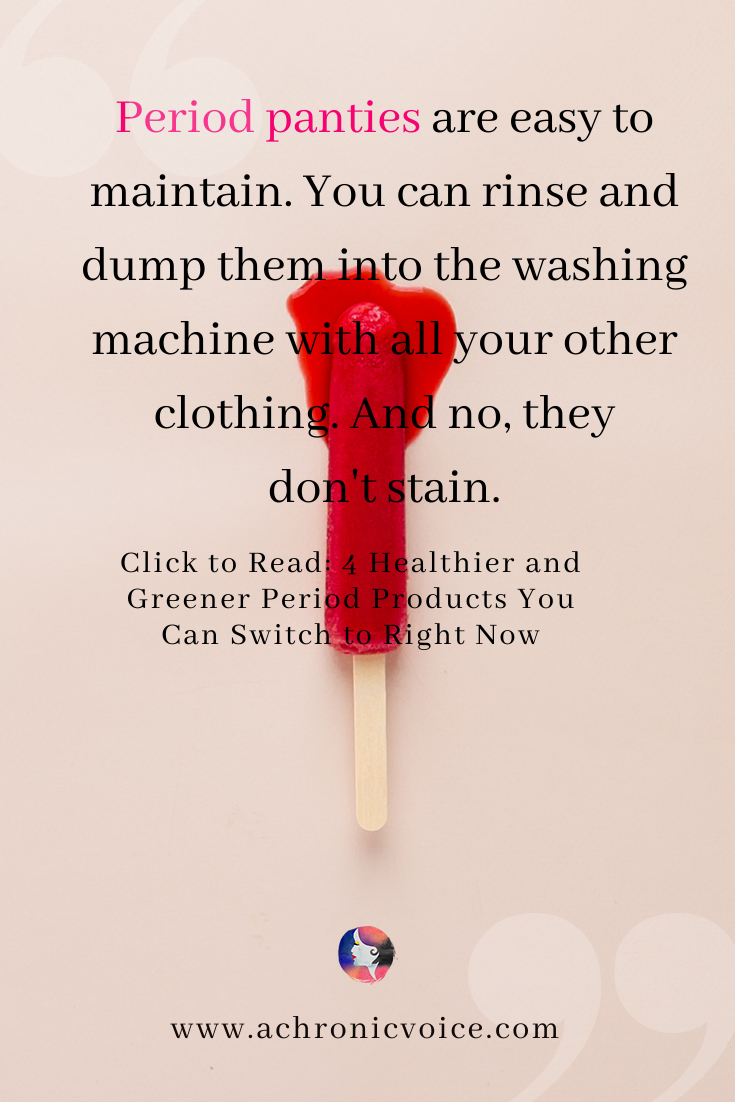
3. Reusable Cotton Sanitary Pads
If you like your sanitary pads, reusable cotton pads are a great alternative as well. They come in different sizes that are suitable for use as a pantyliner, light and heavy flows. The Period Co has an Eco Femme Cloth Pad Starter Bundle on discount if you wanted to give each size a try.
Like period underwear, you can wash cloth pads like regular clothing. They’re also kinder on your skin, and are especially great for those with sensitivities. Some of these pads come in cute colours and patterns, which might bring a smile to your face! Finally, they’re easy to use and don’t shift around. Unlike disposable pads which use chemical adhesives to stick onto your underwear, reusable cotton pads come with buttons on their wings. Simply fold them backwards and snap them on.
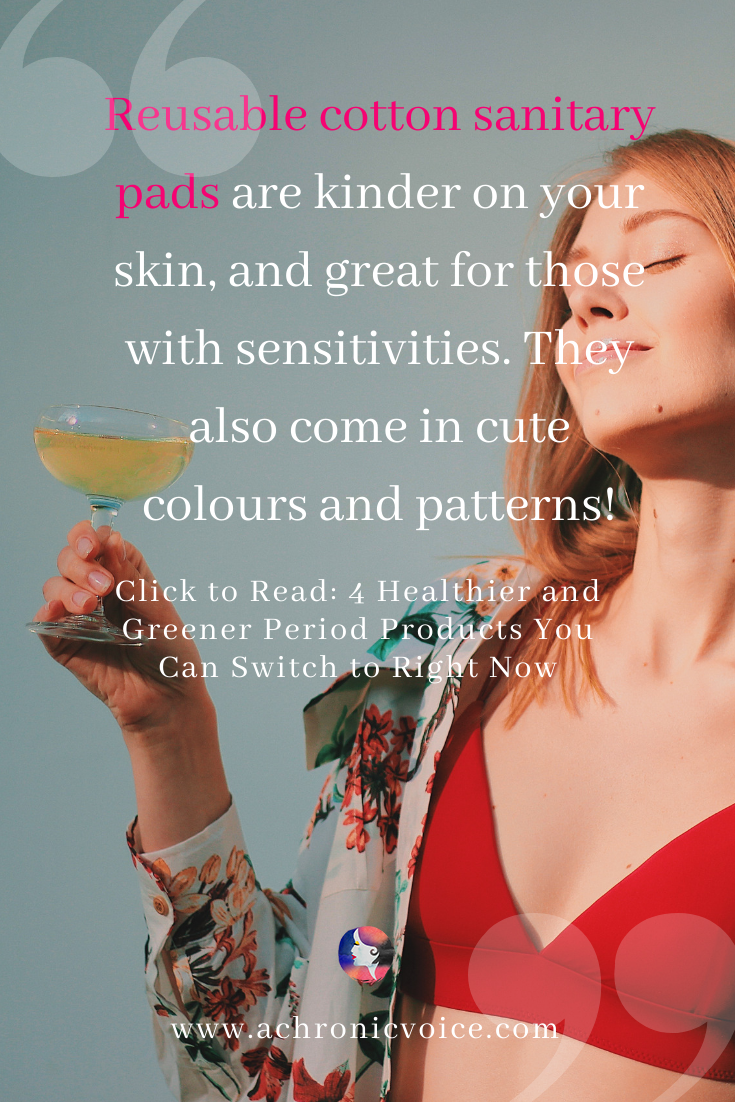
4. Organic Pads & Tampons
For those who still prefer disposable pads and tampons, there are also some good options out there that are organic and/or biodegradable. Rael is a favourite of mine, and also a top selling brand on Amazon. I have noticed less vaginal irritations after switching to it, as compared to non-organic pads and tampons. These products are also free from fragrance, pesticides, artificial dyes, toxic adhesives, GMOs, rayon, polyester, chlorine, and many other toxic chemicals which are commonly found in regular pads and tampons. Here are some great suggestions from Cosmopolitan for organic pads and organic tampons.
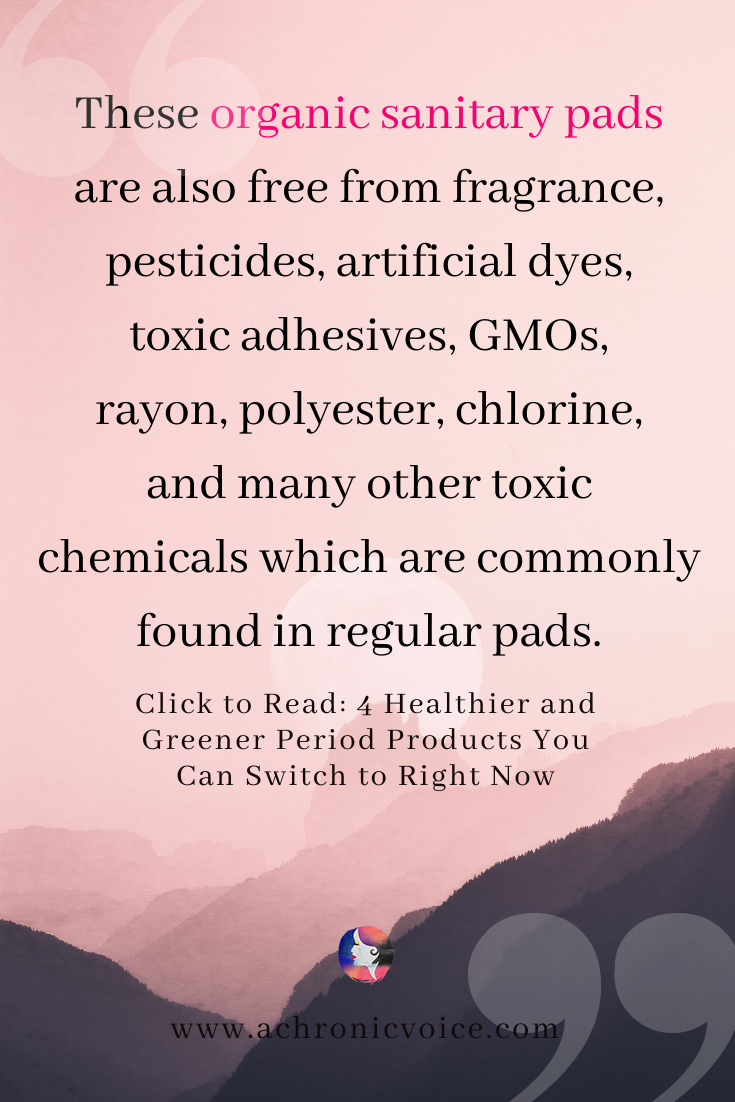
In Conclusion
As you can see, there are plenty of fantastic options to keep you your vagina healthy and happy during your periods! I love the reusable aspects to many of these products on the list, and the ease of maintaining them. There is no harm giving them a try, especially with a first time discount and starter packs from many companies. Go green, save some money, and love your hardworking, beautiful body. Menstruation is an ongoing process for many of us, so I’d say that it’s definitely worth the investment.
The Period Co. has a great FAQ section which covers all the questions that may be going through your mind about these menstrual products. They also offer free shipping in Singapore above $60, and installments so you can get started right away!
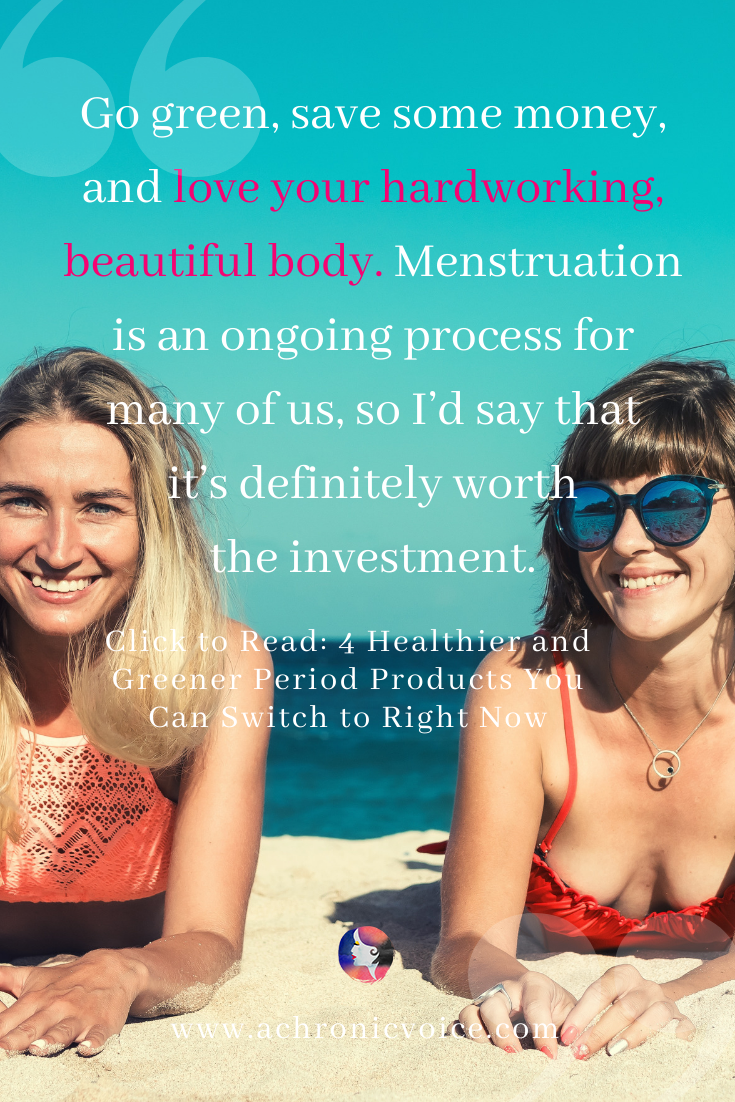
This list is just a rough guide, and nothing in this review should be taken as medical advice. Always be sure to check with your doctor before you start on any new treatment or protocol.
Read More: How to Have a Healthy Relationship with Your Body, Even with Chronic Illness
If you liked this article, sign up for our mailing list here so you don’t miss out on our latest posts! You will also receive an e-book full of uplifting messages, quotes and illustrations, as a token of appreciation!
-
For More Insight:
- Making The Change To Reusable Menstrual Products (rockabillyspoonie.com): http://bit.ly/2BThnvR
- I Started My Period And Snapped A Reusable Menstrual Pad Onto My Underwear To Try It Out (littlethings.com): http://bit.ly/2qSZMSy
- Menstrual cups: questions, myths, and misconceptions (helloclue.com): http://bit.ly/2JtDopl
- I tried the menstrual cup you can wear during sex (metro.co.uk): http://bit.ly/2NoiPvk
- How to Use a Period Cup With Minimal Stress and Mess, According to Ob/Gyns (self.com): http://bit.ly/36f9wGP
- Using A Menstrual Cup For The First Time? Here’s Our Step-By-Step Guide (bustle.com): http://bit.ly/2NkF2L4
- Menstruation Study Finds Over 5,000 Slang Terms for ‘Period’ (independent.co.uk): http://bit.ly/2PrHulu
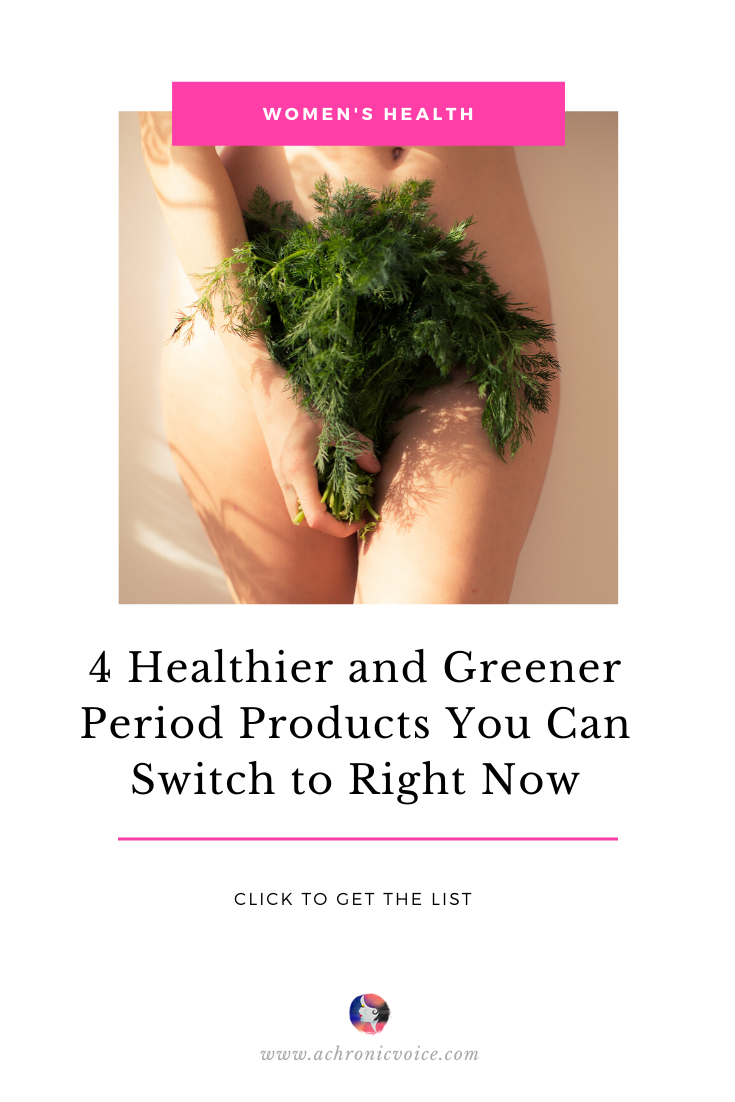
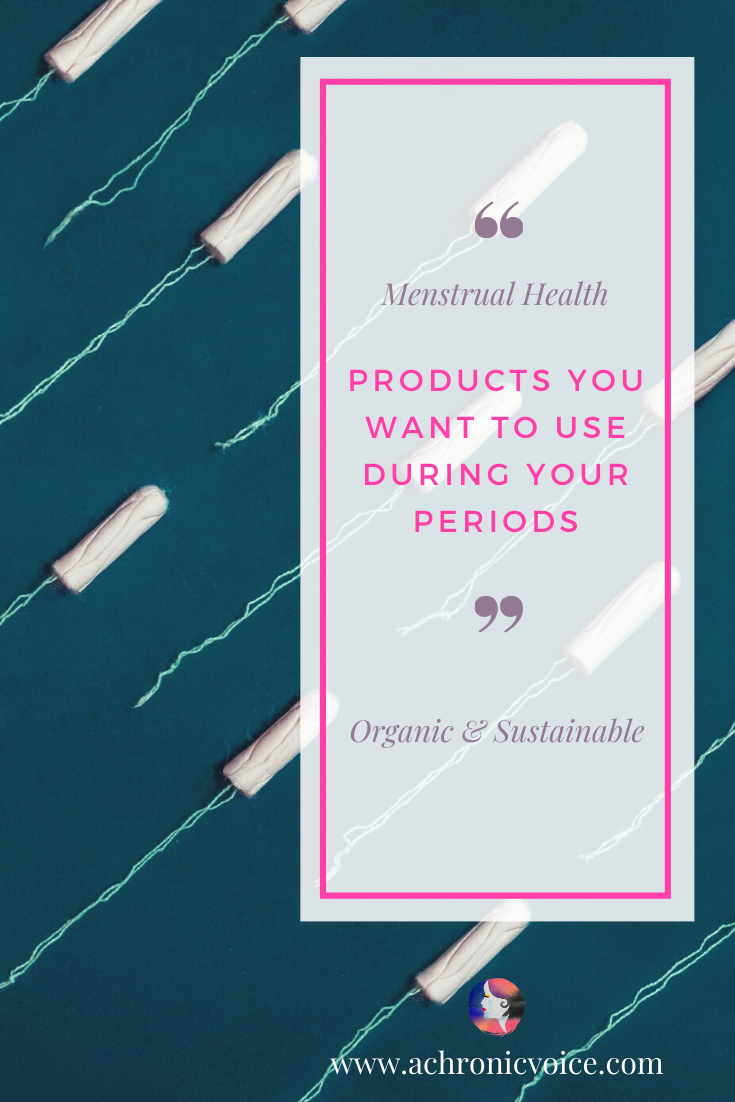
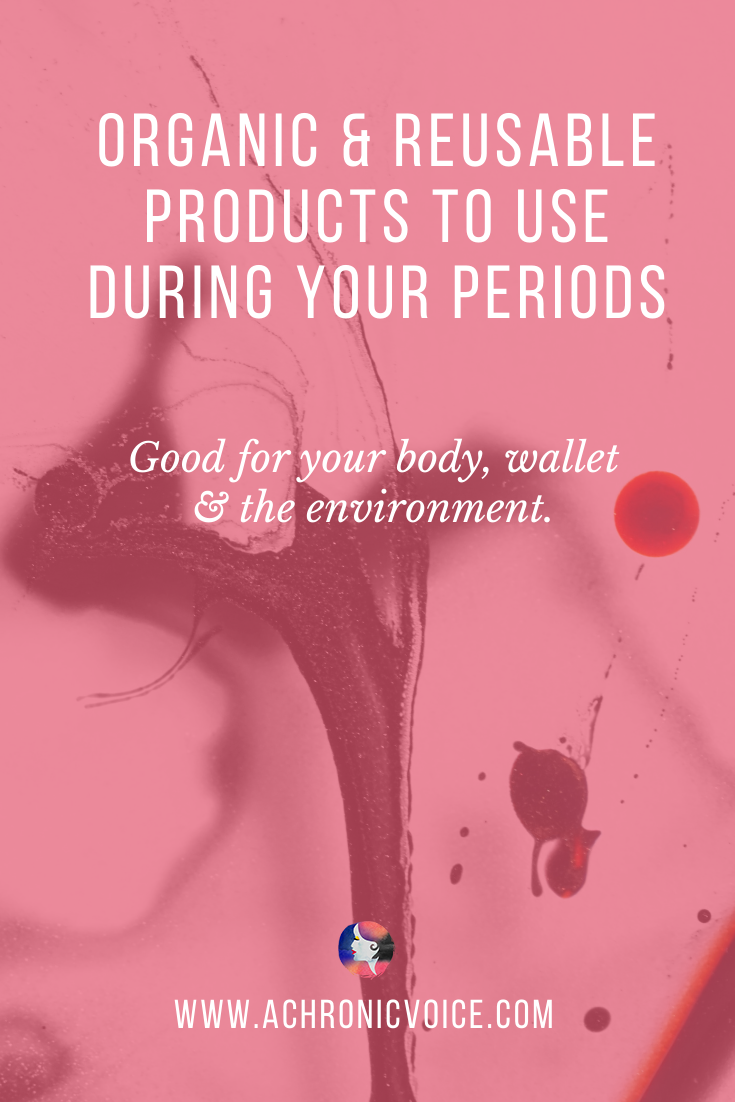

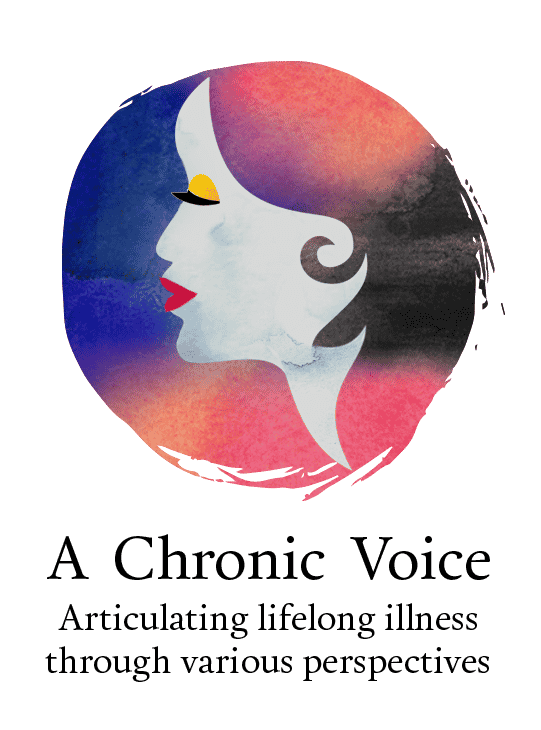
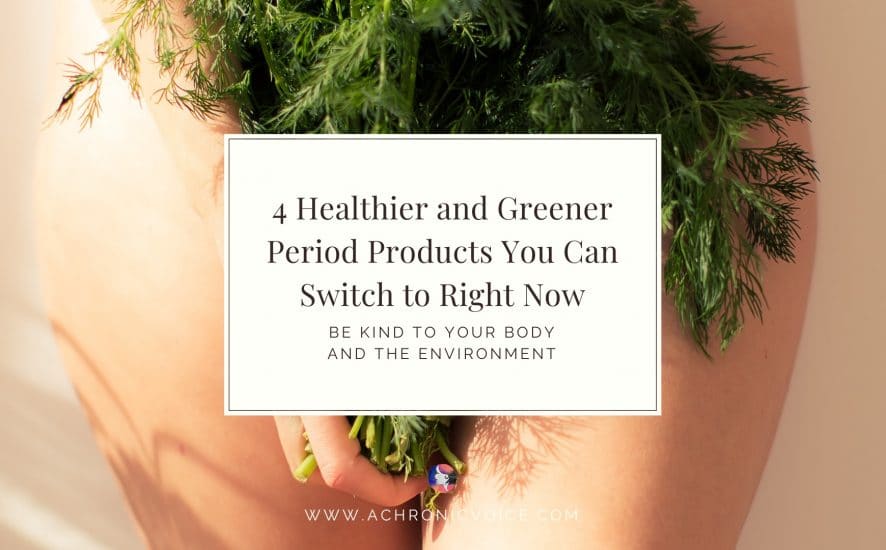
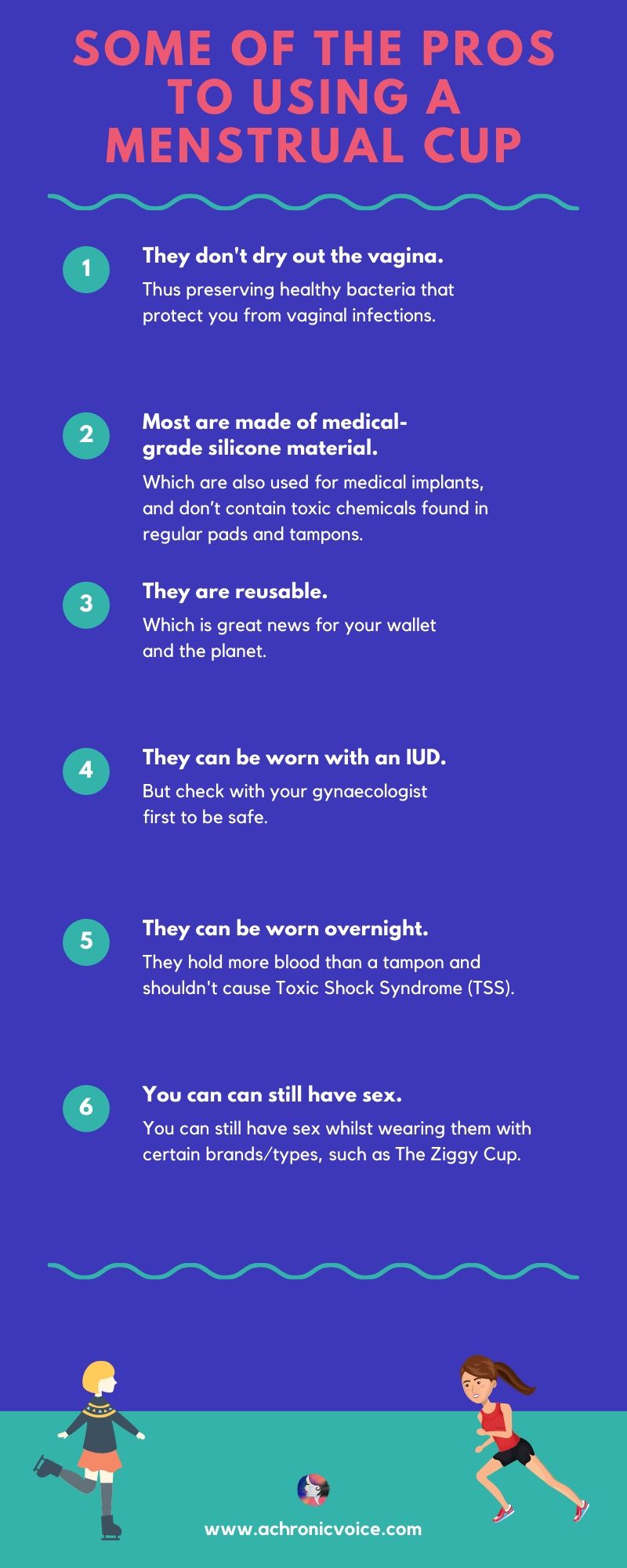
Luckily I dispensed with the need for any of these years ago but some great green ideas 🙂
Hehe…good for you! Yes, some great alternatives I think!